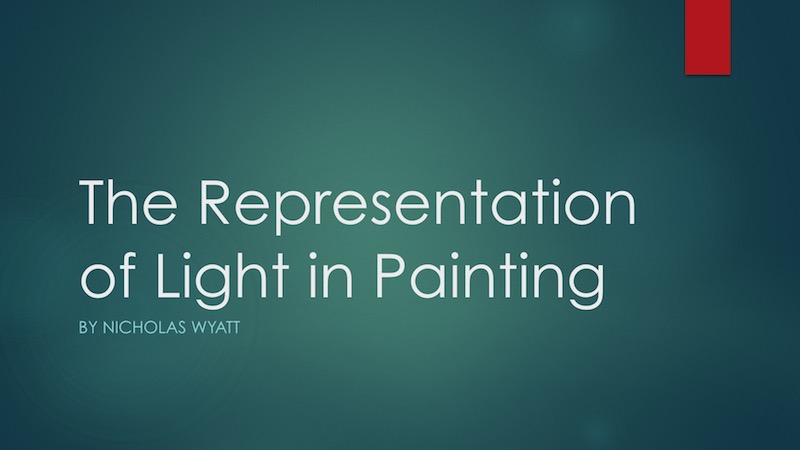Abstraction and Representation in Painting
George Bellows Dock Workers

Keith Chapman, ‘Men of the Docks’,1912 (after George Bellows)
Course: Looking at Paintings, Making Paintings
The National Gallery has just acquired the first George Bellows painting to enter the collection. As part of the Looking at Paintings, Making Paintings course, student Keith Chapman produced the above transcription of the Bellows 1912 painting. The original is currently on display at the National Gallery, Trafalgar Square, London. Visit www.nationalgallery.org.uk/content/conWebDoc/3262
An illustrated talk on ‘The Shock of the Old by Vivian Rehberg’

El Greco Annunciation
Writing in issue 134 of Frieze art magazine (October 2010) the contributing editor, Vivian Rehberg (2010)1 posed the question: What can the past do for the present? Her article, entitled ‘The Shock of the Old’ highlighted the apparent conundrum that in her words ‘despite living in artistically what seem to be highly retrospective and pluralistic times’, public acknowledgement of the transfer of visual forms from the past (tradition) has been ‘nearly thoroughly evacuated from present practice and discourse’.
Modernist theories of art supported the notion of visual forms continuously innovating themselves in an uninterrupted advance and progression in which the role or influence of the past was either redundant or worse, inimical to the ambitions and purposes of the avant garde. Post Modernism treated the past as a series of ‘discourses’ to be interrogated through irony and pastiche. Now, post, post-modernity, contemporary art appears to be asking how the experience of the past can inform the pictorial present. Painting, because of its patterns of evolution, is embedded within various historical narratives and is therefore particularly suited as a medium to issues of original meaning and recuperation. Rehberg’s article directs our attention on the way some artists in recent and contemporary painting have attempted to visualize forms of pictorial recuperation. Examples of this tendency within recent and contemporary British Painting provoke the question: how does contemporary painting acknowledge the influence of the imaginative spaces of the past now? How might contemporary painting represent within its discourses the imaginative spaces of the Western pictorial tradition or have they suffered a loss beyond recuperation and now occupy a condition of nostalgia in our visual cultures? Do images live and die? And if so how and why?
The recovery of historicist models post, post-modernity has become a critically progressive, rather than regressive strategy and seeing the ‘New in the Old’2 permits for a re-visioning of the imaginative spaces of the visual past in contemporary regimes of secular representation.
1 Rehberg, Vivian. (2010). The Shock of the Old. Reproduced in Frieze Art Magazine Issue 134 (October,2010) www.frieze.com/issue/article/shock-of-the-old
2 Rehberg, Vivian. (2010). The Shock of the Old. Reproduced in Frieze Art Magazine Issue 134 (October,2010) www.frieze.com/issue/article/shock-of-the-old

